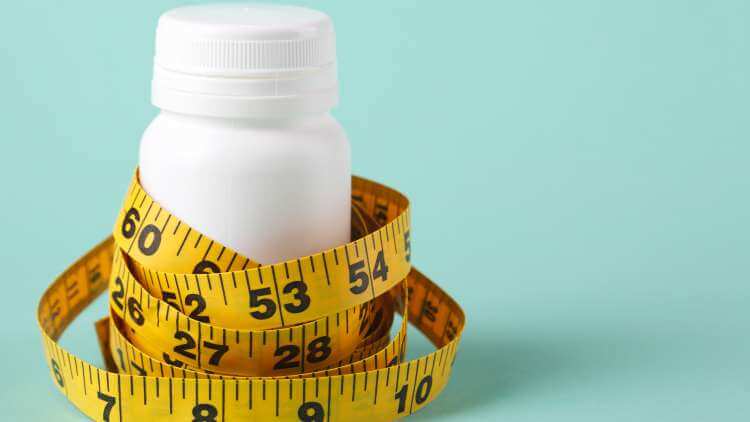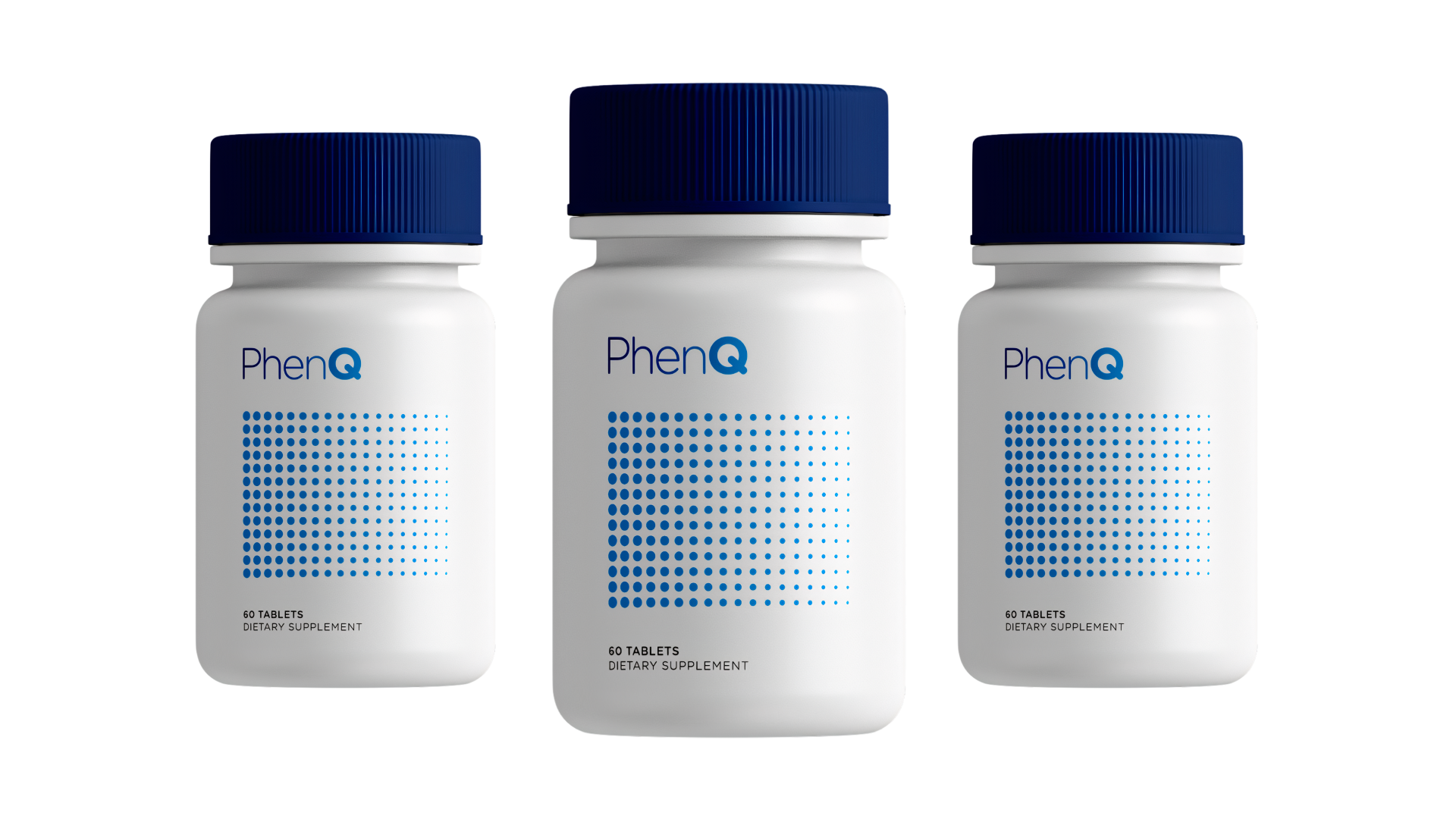When losing weight, we’re always on the lookout for that ‘magic bullet’ to help us reach our goals faster, even though it’s not always in the best interests of our overall health.
Recently an older drug, Naltrexone, has hit the weight loss headlines. Low dose Naltrexone, or ‘LDN’, is often touted as a possible miracle cure for people looking to peel off the pounds quickly, but the question remains; is it safe?
What is Naltrexone?
Naltrexone, sold under the brand names ReVia and Vivitrol, is a chemical which was initially approved by the FDA for the treatment of heroin addiction in 1984. This was followed by its approval as a treatment for alcohol abuse in 1995. It’s still commonly prescribed for the management of opioid and alcohol dependence to this day. For this kind of usage, the typical dosage is 25-100 mg/day.
But that’s not all Naltrexone has been shown to be good for. In more recent times, it’s frequently been subscribed by doctors as an ‘off-label’ (not FDA approved) treatment for impulse control disorders. This helps to explain why Naltrexone has now been included at a low dose (8 mg per tablet) as an ingredient in the popular prescription weight loss drug, Contrave.
If you’re familiar with Contrave, you’ll know it’s been clinically proven to promote good weight loss results. However, it’s come to light that some people may find it possible to lose a considerable amount of weight from taking low dose Naltrexone alone.
Weight loss is a well known side effect of taking Naltrexone for any purpose. Often, the weight loss experienced as a result of taking Naltrexone is perceived as a favorable side effect. Almost like an unexpected ‘bonus’ for the drug therapy. But how does this happen? There are several theories:
1. Naltrexone blocks the ‘feel good’ pathway of the nervous system
There’s a complex messaging system within us that determines how we respond to pleasurable experiences such as food, sex, and drugs such as alcohol. Several neurotransmitters (including dopamine, cannabinoids, opioids and serotonin) as well as neuropeptides (such as orexin, leptin and ghrelin) are responsible for regulation of our food intake. These same factors are associated with the rewarding effects of food. Certain foods, particularly those rich in sugars and fat, are potent triggers within this pathway – leading to a vicious craving cycle that’s difficult to resist.
Even when we’re not hungry, these pathways are active. Thousands of years ago, when food was often scarce, this internal mechanism helped to insure our survival. In modern times, when delicious food is plentiful however, it’s become an evolutionary liability!
Naltrexone acts as an opioid receptor antagonist which is thought to indirectly lessen the activation of pleasure and reward centers within the central nervous system. This results in a decrease in the pleasure and reward sensations associated with food consumption, even when that food is high in fats and sugars.
This combined with a decrease in ghrelin levels inevitably leads to a decrease in appetite. And naturally, a decrease in appetite will result in an overall lower caloric intake, followed by weight loss.
The effect varies for each individual, but on a very basic level, most people will lose weight as a side effect of taking Naltrexone, even at a low dose. While this may sound appealing, some of the other side effects won’t. Nausea, vomiting and diarrhea anyone?
2. Naltrexone may lead to better decision making when choosing food
The decision to choose food which offers ‘immediate gratification’ over a later reward is partly determined by a frontal portion of our brain called the orbitofrontal cortex (OFC). This ‘higher center’ decision process is often hindered in people with drug or alcohol addiction. It’s thought that their minds have somehow been ‘rewired’ to respond more strongly to impulsive, less deductive lower brain impulses.
Naltrexone is thought to boost activation in the OFC during decision-making tasks. This may help an individual to resist the temptation of alcohol, drugs, or that gooey chocolate cake in the office break room.
3. Naltrexone may directly contribute to weight loss
In some studies, Naltrexone has been associated with a decrease in basal, or baseline insulin levels. Insulin is our primary ‘anabolic’ or storage hormone. In other words, high levels lead to weight gain. A decrease in the insulin level may, therefore, contribute directly to weight loss.
Naltrexone may also lead to a returned balance of our gut bacteria. Many studies have implicated gut bacteria imbalance with weight gain, and it’s been shown that thinner individuals generally have a more ‘balanced’ gut profile. Limited studies in people with bacterial gut overgrowth have suggested that Naltrexone treatment is associated with a ‘return to balance’, which may contribute to weight loss.
Is Weight Loss with Low Dose Naltrexone Fast or Gradual?
Low dose naltrexone (LDN) is known for promoting a steady and natural weight loss journey. Unlike quick-fix solutions that promise rapid results, LDN encourages a more sustainable approach.
Benefits of Gradual Weight Loss with LDN:
- Consistent Progress: Expect to see gradual changes, typically around 1 to 2 pounds per week. This pace is not only healthier but also more sustainable in the long run.
- Improved Habits: As your body adjusts to the changes, it becomes easier to adopt healthier lifestyle habits that support ongoing weight management.
- Natural Approach: By avoiding the drastic fluctuations often associated with rapid weight loss, LDN offers a more balanced way to shed extra pounds.
In summary, LDN facilitates a slower, more deliberate weight-loss process that emphasizes longevity over immediate results.
What Additional Measures Are Recommended Alongside Low Dose Naltrexone for Weight Loss?
When incorporating low dose naltrexone into your weight loss plan, it's vital to combine it with other healthy lifestyle choices for optimal results. Here are some recommended measures to enhance your weight loss journey:
1. Regular Physical Activity
Engage in consistent physical activity that you enjoy, whether it's brisk walking, cycling, or dance classes. Aim for at least 150 minutes of moderate exercise per week to boost your metabolism and burn calories.
2. Balanced Nutrition
Focus on nutritious, whole foods. Incorporate a variety of fruits, vegetables, lean proteins, and whole grains into your diet. Pay attention to portion sizes and try to minimize processed foods and added sugars.
3. Adequate Rest
Prioritize getting enough high-quality sleep. Most adults need between 7 to 9 hours per night. Good sleep helps regulate hormones and reduces stress, both of which can affect weight.
4. Hydration
Stay hydrated by drinking enough water throughout the day. Sometimes thirst can be mistaken for hunger, leading to overeating.
5. Mindful Eating
Pay attention to your body's hunger cues and eat slowly. Being mindful of what and when you eat can help prevent overindulgence and promote a healthier relationship with food.
By integrating these lifestyle habits, you can more effectively support your weight loss goals alongside the use of low dose naltrexone.
How Does Low Dose Naltrexone Affect Endorphin and Growth Hormone Levels?
Low dose naltrexone (LDN) has a fascinating impact on the body's natural hormone levels, particularly endorphins and growth hormones.
Boosting Endorphin Levels
LDN has been found to enhance the production of endorphins, the body's feel-good hormones. It's especially effective when taken during nighttime. This increase in endorphins can be beneficial for people with autoimmune disorders, as these hormones play a critical role in regulating inflammation and improving overall well-being.
Enhancing Growth Hormones
In addition to endorphins, LDN influences growth hormone levels. By reducing insulin levels, it creates an environment conducive to higher production of adult human growth hormones. This boost can contribute to better muscle development and more effective fat metabolism, which is advantageous for those looking to improve physical fitness or manage weight.
In summary, LDN promotes healthier hormone balance by elevating endorphin production and facilitating the release of growth hormones, helping the body combat inflammation and enhance metabolic functions.
What Are the Potential Benefits of Regulating Insulin for Weight Loss?
Regulating insulin plays a crucial role in weight management and can lead to several potential benefits:
-
Reduced Fat Storage: Insulin is a hormone that controls blood sugar levels, but it also affects how the body stores fat. By regulating insulin, the body becomes more efficient at using sugar for energy instead of storing it as fat.
-
Decreased Hunger and Cravings: Stabilizing insulin levels can help curb hunger and reduce cravings for sugary and high-carb foods. This makes it easier to stick to healthier eating habits.
-
Improved Metabolism: Balanced insulin contributes to a more efficient metabolic rate, which helps burn calories faster and supports weight loss efforts.
-
Enhanced Energy Levels: By ensuring that glucose is used effectively, regulating insulin can lead to more stable energy levels throughout the day, reducing fatigue and enhancing physical activity.
-
Lowered Risk of Weight-Related Health Issues: Proper insulin regulation can decrease inflammation in the body, potentially lowering the risk of developing type 2 diabetes and other obesity-related health problems.
Addressing insulin balance can be a powerful strategy in achieving and maintaining a healthy weight, alongside a balanced diet and regular exercise.
Can Low Dose Naltrexone Improve Sleep and How Does This Relate to Weight Loss?
Low Dose Naltrexone (LDN) has been gaining attention for its potential benefits in enhancing sleep quality. While more comprehensive research is needed, some individuals report experiencing a calming effect and reduced anxiety with LDN, which can contribute to better sleep patterns.
But how does improved sleep tie into weight loss? Here's the connection:
-
Hormonal Balance: When sleep is compromised, the body can experience elevated cortisol levels and inflammatory cytokines. This hormonal disruption can hinder weight loss efforts by prompting the body to conserve fat.
-
Metabolic Function: Sufficient rest supports optimal metabolism. Insufficient sleep may impair insulin sensitivity, leading to increased fat storage rather than its utilization as energy.
Thus, by potentially aiding in better sleep, LDN might indirectly support weight management by keeping hormonal and metabolic processes in check.
Where to get Naltrexone
Naltrexone is a prescription-only medication in the USA, and you should only take it if your doctor is willing to prescribe it to you. Although it may be technically possible, it’s never a good idea to order drugs like these online.
Chances are, the drugs you receive may be counterfeit, and there’s even a possibility you may never receive them if customs seize your package. Even more importantly, you may be putting your health at risk if you don’t check with your doctor whether the drug is suitable for you first.
Assuming you go down the correct route to obtain Naltrexone, the potential side effects of this drug still need to be considered before you take the plunge.
Bear in mind that the common side effects of Naltrexone include:
- Nausea
- Headache
- Vomiting
- Constipation
- Dizziness
- Increased blood pressure
- Anxiety
- Insomnia
These side effects have been noted even at low doses, which is why many doctors are reluctant to prescribe Naltrexone for weight loss purposes.
Check also: Do Lipotropic Injections Work? Results and Side Effects
Safe alternatives to Naltrexone for weight loss
As you can see, there are a number of concerns associated with the use of Naltrexone for weight loss. Although it may be effective in many people, the difficulty in obtaining it, plus the potential risks it carries for your health make it quite an unappealing weight loss drug to most people.
The mainstay of healthy weight loss is a balanced, lower calorie diet, rich in vegetables and lean protein and scant in sugar and calorie-rich fat. Proper exercise to promote caloric burn, along with muscle growth or maintenance, is also essential. But for many people, diet and exercise alone aren’t enough when faced with a lot of weight to lose.
It’s hardly any wonder then that people turn to drugs such as Naltrexone for support. But for the health conscious, a more gentle, natural alternative can be used.
Weight loss without the health risks
PhenQ is an all-natural weight loss supplement designed to mimic the effects of Naltrexone. It contains a patented blend of 7 herbal ingredients that have each been scientifically proven to induce weight loss.
PhenQ allows you to:
- Suppress your appetite to ensure you consume fewer calories
- Switch to burning stored fat due to the thermogenic properties of PhenQ’s ingredients
- Improve your mood and energy levels thanks to the addition of caffeine and a lighter frame!
Produced in the US and UK in GMP and FDA approved facilities, thousands of people have trusted and been amazed by the results they’ve achieved with PhenQ. But you don’t have to take our word for it. Take a look at these testimonials from PhenQ users.
Related Articles:




